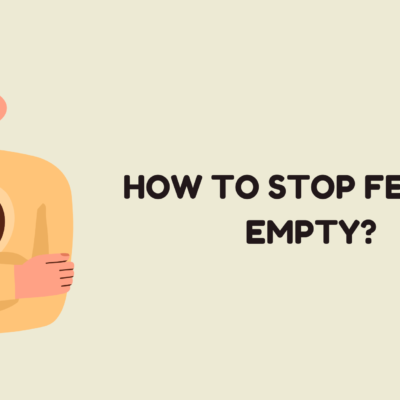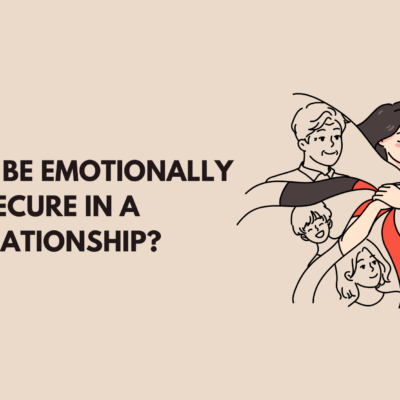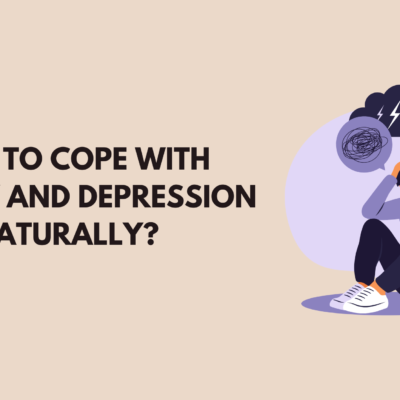How to Release Mental Stress: Mental stress has become a common issue in today’s fast-paced world. Whether it’s due to work pressure, personal relationships, financial worries, or health concerns, prolonged stress can take a toll on both mental and physical well-being. If left unchecked, it can lead to anxiety, depression, sleep disorders, and even physical ailments like high blood pressure and heart disease.
The good news is that stress is manageable. With the right techniques, you can release mental stress and regain control over your thoughts and emotions. This article explores effective ways to reduce and manage stress, promoting a healthier and more balanced life.
Also Read:
- How to Change Your Negative Thoughts into Positive?
- Why Does God Let Bad Things Happen to Good People?
Understanding Mental Stress
What is Mental Stress?
Mental stress is the psychological and emotional strain experienced when dealing with challenging situations. It can be caused by external factors like work deadlines or personal conflicts, as well as internal factors like self-doubt and overthinking.
Common Causes of Mental Stress
- Work pressure – Deadlines, workload, job insecurity
- Personal relationships – Conflicts, misunderstandings, breakups
- Financial problems – Debt, unexpected expenses, financial instability
- Health issues – Chronic illness, lack of sleep, poor nutrition
- Major life changes – Moving to a new place, marriage, loss of a loved one
- Unrealistic expectations – Perfectionism, fear of failure
Understanding what triggers your stress is the first step toward managing it effectively.
Effective Ways to Release Mental Stress
1. Practice Deep Breathing Exercises
Deep breathing helps calm the nervous system, reducing stress and anxiety instantly. Try these techniques:
- 4-7-8 Breathing Technique – Inhale for 4 seconds, hold for 7 seconds, and exhale slowly for 8 seconds. Repeat this cycle several times.
- Diaphragmatic Breathing – Breathe deeply into your belly instead of your chest to activate relaxation responses.
- Box Breathing – Inhale for 4 seconds, hold for 4 seconds, exhale for 4 seconds, hold again for 4 seconds.
These techniques can be practiced anywhere and provide immediate relief from stress.
2. Engage in Physical Activity
Exercise is one of the most effective ways to release stress. Physical activity helps release endorphins, the body’s natural stress relievers.
- Cardio exercises like running, cycling, or dancing help burn off stress hormones.
- Strength training improves mood and boosts confidence.
- Yoga and stretching promote relaxation and mindfulness.
- Walking in nature can have a calming effect on the mind.
Even a 15–30-minute workout can significantly lower stress levels.
3. Practice Mindfulness and Meditation
Mindfulness helps you focus on the present moment, reducing overthinking and stress.
- Meditation – Set aside 10–15 minutes daily to sit quietly and focus on your breath.
- Body scan meditation – Pay attention to different parts of your body and release tension.
- Mindful activities – Eating, walking, or even washing dishes mindfully can bring a sense of calm.
Regular mindfulness practice can help train your mind to handle stress more effectively.
4. Write Down Your Thoughts (Journaling)
Writing can be a powerful tool for stress relief.
- Expressive writing – Write about what’s bothering you and how you feel.
- Gratitude journaling – List three things you’re grateful for daily to shift your focus to positivity.
- Problem-solving journaling – Write down stressful situations and brainstorm possible solutions.
Journaling helps you process emotions and gain clarity on stressful thoughts.
5. Reduce Caffeine, Sugar, and Alcohol Intake
What you consume can directly impact your stress levels.
- Limit caffeine and energy drinks, as they can increase anxiety and restlessness.
- Reduce sugar intake, as sugar crashes can worsen stress and mood swings.
- Avoid excessive alcohol consumption, as it can increase stress in the long run.
- Drink more water and herbal teas like chamomile or green tea, which have calming effects.
A balanced diet helps maintain stable energy levels and improves overall well-being.
6. Get Enough Sleep
Lack of sleep makes it harder to manage stress. Improve your sleep habits by:
- Setting a regular sleep schedule (Going to bed and waking up at the same time daily)
- Avoiding screens before bedtime (Blue light disrupts melatonin production)
- Creating a bedtime routine (Reading, meditating, or taking a warm bath)
Aim for 7–9 hours of quality sleep each night to allow your mind and body to recover.
7. Engage in Activities That Bring You Joy
Hobbies and creative activities help distract the mind from stress.
- Listen to music – Calming or upbeat music can instantly uplift your mood.
- Watch a funny movie – Laughter reduces stress hormones and improves mood.
- Read a book – Fiction or self-help books can provide a mental escape.
- Paint, draw, or engage in a craft – Creative activities can be therapeutic.
Spending time doing what you love can serve as a great stress reliever.
8. Socialize and Connect with Loved Ones
Isolation can worsen stress, while social connections provide emotional support.
- Talk to a friend or family member – Sharing your worries can lighten the mental load.
- Join a support group – Connecting with people going through similar experiences can be helpful.
- Spend time with positive people – Surround yourself with those who uplift and encourage you.
Strong relationships and emotional support play a crucial role in managing stress.
9. Set Realistic Goals and Manage Time Effectively
Feeling overwhelmed by responsibilities increases stress. Organizing your tasks can help:
- Prioritize tasks – Use a to-do list or planner to break down work.
- Avoid multitasking – Focus on one task at a time for better efficiency.
- Take short breaks – Working continuously can increase stress levels.
- Learn to say no – Don’t take on too many responsibilities if they drain you.
Time management reduces pressure and helps you stay calm under stress.
10. Practice Self-Compassion and Positive Self-Talk
Many people put unnecessary pressure on themselves, leading to stress.
- Be kind to yourself – Accept that you’re human and mistakes are part of life.
- Challenge negative thoughts – Replace thoughts like “I can’t do this” with “I will do my best.”
- Celebrate small wins – Acknowledge your efforts, even if progress is slow.
Self-compassion reduces inner criticism and allows you to handle stress with a balanced mindset.
11. Limit News and Social Media Consumption
Constant exposure to negativity from the news or unrealistic social media comparisons can increase stress.
- Take breaks from social media – Reduce time spent scrolling through stressful content.
- Curate your feed – Follow pages that inspire and bring positivity.
- Set screen time limits – Avoid digital overload by setting time restrictions.
Focusing on real-life experiences rather than online distractions helps maintain mental peace.
12. Seek Professional Help If Needed
If stress becomes overwhelming and starts affecting your daily life, consider seeking help from a professional.
- Therapy or counseling – A therapist can provide coping techniques tailored to your situation.
- Cognitive Behavioral Therapy (CBT) – Helps change negative thought patterns.
- Support groups – Talking to people with similar experiences can be comforting.
There’s no shame in seeking help—mental well-being is just as important as physical health.
Conclusion
Mental stress is a natural part of life, but it doesn’t have to control you. By practicing deep breathing, exercising, engaging in mindfulness, journaling, getting enough sleep, and prioritizing self-care, you can effectively release mental stress.
It’s important to remember that stress management is an ongoing process. Be patient with yourself, take small steps, and make self-care a priority. With consistent effort, you can cultivate a calmer, healthier, and more balanced life.






